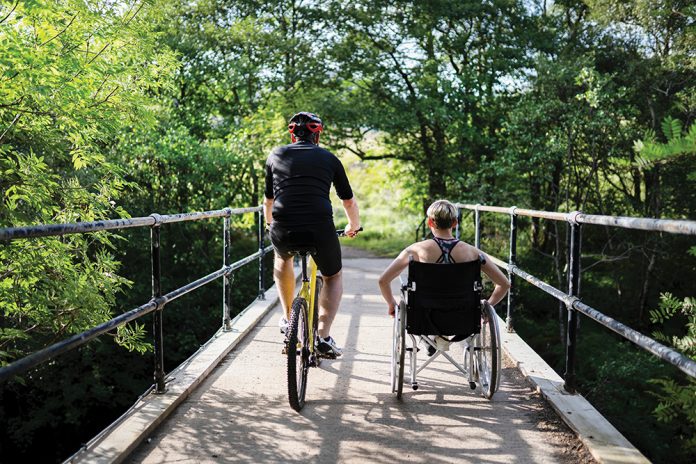Following new scientific evidence published by the World Health Organization (WHO), Travelknowhow Scotland is calling on workplaces in Scotland to encourage the switch to more sustainable and active travel.
In a new publication, the WHO reported that investments in policies that promote safe cycling and walking can play a crucial role in shaping health, mitigating climate change and improving the environment. Travelknowhow Scotland, which offers organisations across Scotland free practical support to transition to net zero, said that the release of this publication provides further solid evidence of the need to change the way we commute.
Earlier this year, Travelknowhow Scotland completed the second wave of their Sustainable Business Travel Survey. This survey highlighted that more needs to be done to help and encourage businesses across Scotland in implementing active and sustainable travel measures, with only 19% of respondents reporting they had a travel plan in place and 10% in the process of developing one.
Additionaly, just 3% of those surveyed said their organisation had created an action plan and were well on the way to achieving net zero. Even if not all car journeys could be substituted, the potential for decreasing emissions is considerable – as stated in the new WHO publication.
By encouraging an active commute, businesses can also create a happier and healthier workforce. Active and sustainable modes of travel such as cycling and walking are not only good for the environment, but they’re also important for our physical health.
For example, the new WHO publication and other studies have found that walking for 30 minutes or cycling for 20 minutes on most days can reduce mortality risk by at least 10%, and active commuting is associated with about a 10% decrease in risk for cardiovascular disease and a 30% decrease in type 2 diabetes risk.
What is being done in Scotland?
In addition to committing to net zero, the Scottish Government recently announced an ambitious target of reducing car kilometres travelled by 20% by 2030.
From their route map, which aims to reduce car use for a healthier, fairer, and greener Scotland, several steps have already been taken which businesses can take advantage of to help encourage travel behaviour change amongst employees. These include free bus travel for people aged under 22, the introduction of Low Emission Zones, increased public funding, and investment into active travel infrastructure.
Travelknowhow Scotland commented that future steps in the Scottish Government’s route map will be essential for making active travel accessible. The route map aims to increase accessibility through the introduction of a national prohibition on pavement parking, parking at dropped curbs and double parking, by 2023.
What support is available to develop a travel plan?
Travelknowhow Scotland, funded by Smarter Choices Smarter Places, and in partnership with Cycling Scotland and Sustrans, is currently offering a free consultancy support package.
The free consultancy package from Travelknowhow Scotland is open to all workplaces in Scotland and is designed to provide practical measures to businesses who want to act towards net zero targets and encourage their employees to look at more active and sustainable travel options.
You can find out more and how to register your interest at
www.travelknowhowscotland.co.uk/pages/view/free-consultancy-support-available-for-workplaces







